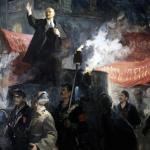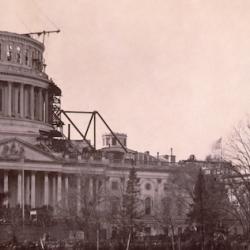Locke is often seen as the heir to Reformation political theology. Ruben Alvarado (Calvin and the Whigs) begs to differ. Locke was waiting in the wings when Calvinist politics eroded.
He writes: “Puritans founded some of the chief colonies in America, those of New England, and their influence was by no means negligible among the other colonies. Puritanism as it developed in America was holy commonwealth Calvinism, with strong connections not only with England and Scotland but also with the Dutch Reformed in the Netherlands” (168).
Circumstances played a role in preparing the ground for the acceptance of Locke’s more individualist and semi-secular political theology: “Together with the hard conditions of life faced by these pioneers who built a civilization in the wilderness, this Puritanism formed a natural ground for acceptance for the ‘rugged individualism’ that John Locke’s approach to constitution and citizeship contained” (168).
As the holy commonwealth waned, “individual colonists very easily fell more under the spell of the Lockean paradigm than other more absolutist forms of modern polity. Locke provided the backsliding sons of the Puritans with an alternative to the either/or of the reign of the saints or the benevolent despot” (168).












